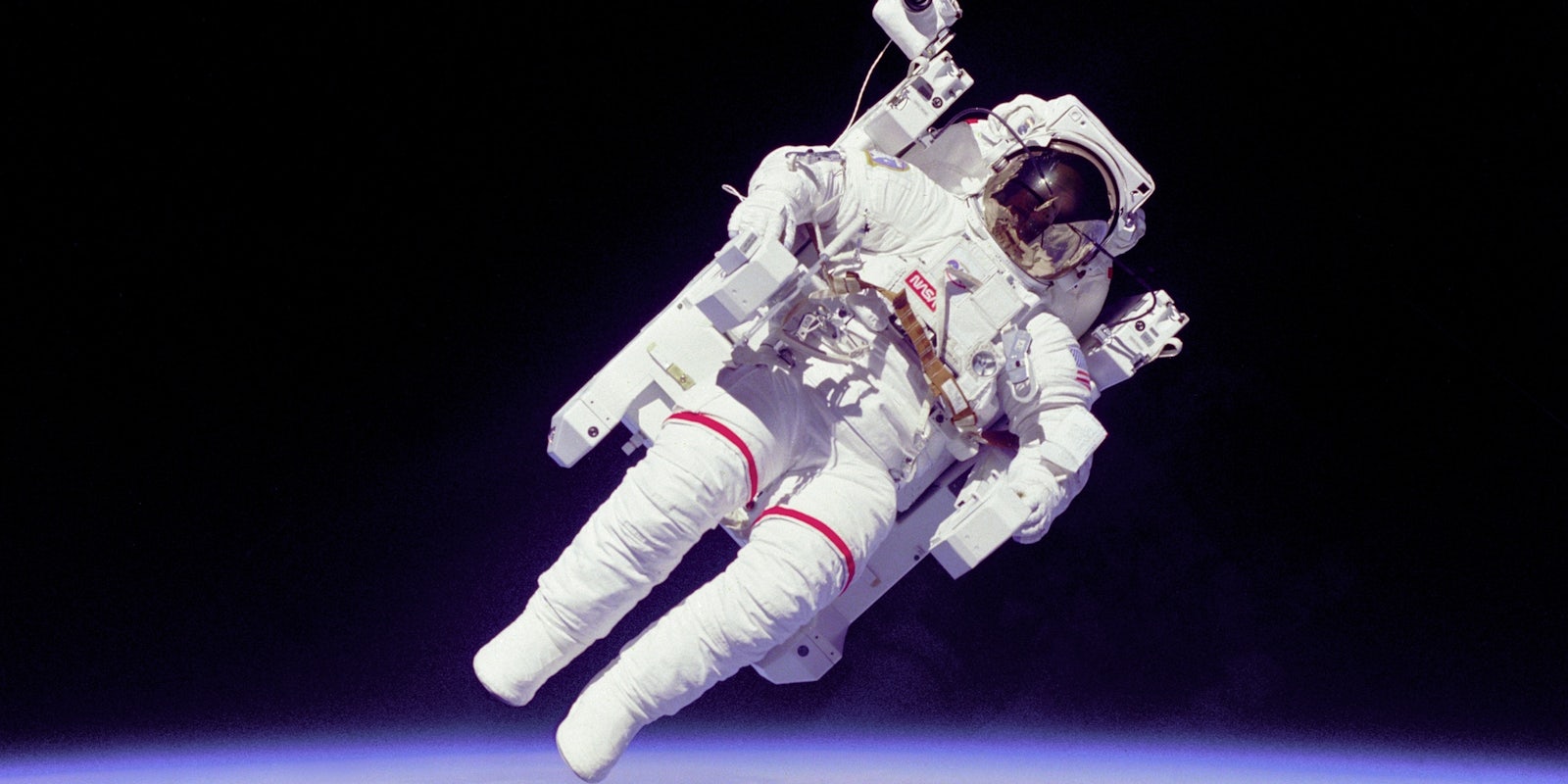Starting Dec. 14, NASA is opening up applications for new astronaut teams, giving thousands of people a shot at becoming space travelers.
The candidates could eventually be considered for trips to the International Space Station and for deep space missions that are a part of NASA’s plan to send people to Mars in the 2030s.
The job requires a bachelor’s degree in a STEM field, three years of professional experience or the 1,000 hours of in-command jet experience to apply. That leaves the field open to a broad range of applicants.
But, before you send in your resumé and start creating the mix tape you’ll take on your trip to Mars, maybe pause for a reality check. Here are some things you’ll want to consider about the realities and risks of living in space.
1) Your muscles get all wonky
For even the laziest among us, our muscles are constantly working to keep us upright against Earth’s gravitational pull. But in space, the effect of gravity on the muscles is drastically reduced. Muscles unfortunately have a pesky “use it or lose it” way about them, so people in low-gravity situations tend to lose muscle mass. To counteract the atrophy, astronauts have to be fastidious about exercise. Here’s Chris Hadfield, the Internet’s favorite Canadian astronaut, demonstrating:
2) Your face and bones get wonky, too
Muscles weren’t the only parts of your body designed to work under the crushing weight of Earth’s gravity. Without the pressures of gravity, bones begin to deteriorate as well—at a rate of 1 percent per month. But another curious thing happens: your face swells up. That’s because the veins in your legs put a lot of pressure on your blood to push it up against gravity back to your heart. Without gravity, the blood is forced up without a natural pull back down. This can cause your face to swell up.
3) You will probably get horribly, disgustingly sick
Your body orients itself using a number of mechanisms, most of which rely on, you guessed it, gravity. Without gravity, the organs of the inner ear that keep you oriented and balanced don’t work, giving you an incredible case of motion sickness. Up to 80 percent of astronauts experience this space sickness, which thankfully goes away after a few days once your brain learns to make sense of the confusing signals between your eyes and your inner ears.
4) You don’t get to shower, ever
If you’ve seen videos of astronauts playing with floating globs of water in space, you understand why showering isn’t really an option. Instead, astronauts take what amounts to a sponge bath. Luckily, according to astronaut Mike Fossum, you don’t get terribly sweaty or gross thanks to the climate control and the lack of heavy lifting on the extremely clean ISS.
5) Going to the bathroom sucks—literally
By now you get the picture that pretty much every aspect of life is aided by gravity here on terra firma. That includes the graceful descent of your dookie into the toilet water. Astronauts aboard the ISS have to aim very carefully into a small hole for number two or into a little hose for number one. Each mechanism has a little suction to help everything go down the right tube, but as astronaut Suni Williams points out in the video, things sometimes get a little out of control. The silver lining to the ISS porcelain throne (that isn’t actually porcelain) is that you get a wide selection of things to wipe with.
6) Your eyes may go bad, and you’ll have to collect data on them.
One strange aspect of spending a lot of time in space is that it makes some people’s eyesight worse, and researchers aren’t really sure why. So they’re doing experiments up in space to try and figure out what’s going on. That means the astronauts have to be the guinea pigs. According to Hadfield, they have to do all kinds of experiments with their eyes, one of which involves having their astronaut buddy tap a little device directly onto the eyeball. For science!
7) You better be solitary, yet able to work with others
Space requires an interesting psychological constitution. While the ISS is relatively spacious and populated (keyword “relatively”), longer space flights require a smaller crew in a smaller cabin for a number of reasons including weight and cost. So imagine being in a tiny cabin with three, maybe four other people around the clock, with virtually no contact from anyone else you know and love. “People can’t anticipate how much they’ll miss the natural world until they are deprived of it,” Mary Roach writes in Packing for Mars. “I have read about submarine crewmen who haunt the sonar room, listening to whale songs and colonies of snapping shrimp. Submarine captains dispense ‘periscope liberty’—a chance to gaze at clouds and birds and coastlines and remind themselves that the natural world still exists.” But when you’re off the planet entirely, even those small creature comforts disappear. You have to be able to withstand the isolation, without taking it out on the rest of your crew.
If you’re prepared to accept these basic realities of living in space, you’re one step closer to being NASA material. Send in that application—we hope you make the grade.
Photo via NASA
